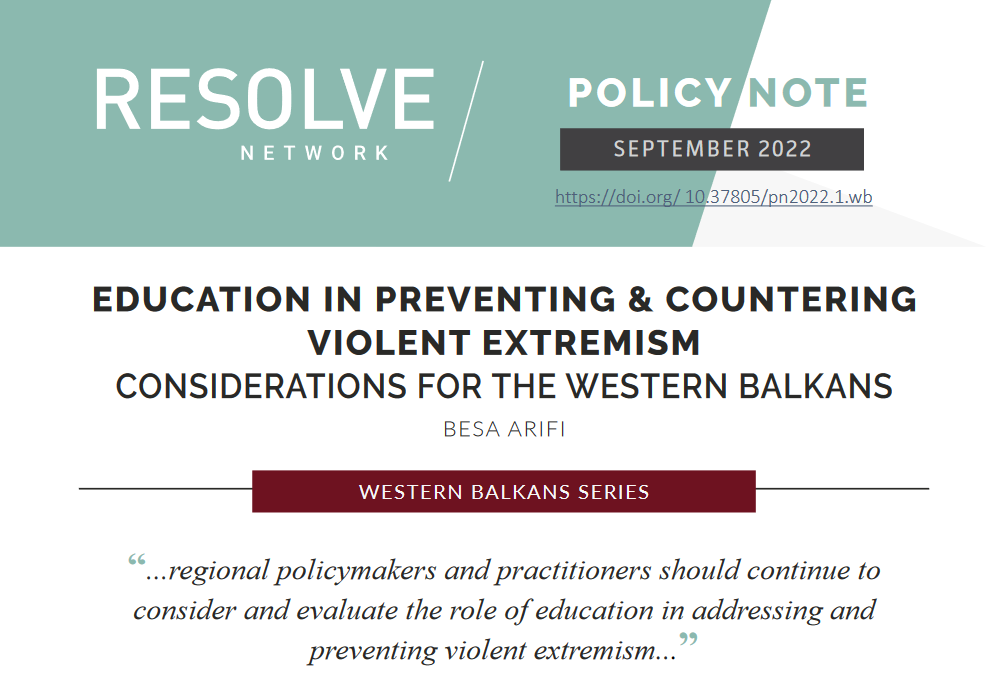Education in Preventing & Countering Violent Extremism: Considerations for the Western Balkans

Abstract
Violent extremism in the Western Balkans takes many forms, from Western Balkans foreign fighters recruited to participate in conflicts abroad, including in the Middle East and Ukraine; to ethno-nationalist organizations that spread inter-ethnic hatred, some emanating from and glorifying legacies of conflict spanning back to the breakup of the former Yugoslavia and regional conflicts in the 1990s; to chauvinism and anti-EU and anti-NATO ideas that emerge to become even more serious and with greater consequences for the region and socio-political cohesion and dynamics. As violent extremism continues to evolve and adapt in the Western Balkan countries, efforts to address it must also adjust to new threats from both internal and external sources.
Recent research on violent extremism in the Western Balkans, and North Macedonia specifically, suggests that education may be an important tool in addressing violent extremism in the region. Some have suggested educational initiatives may assist in addressing online and offline disinformation and extremist narratives. Furthermore, addressing ongoing issues within ethnically divided educational systems may play an important role in working to address some of the ethnic-based divisions that can contribute to ”othering” dynamics. Others have further suggested that education and other support services can play a role in aiding the transition of those imprisoned on charges related to violent extremism and returning families back into society.
As countries throughout the Western Balkans continue to update and revise their national action plans and policies to address violent extremism, greater consideration of the role of education and how it might be integrated into these policies is needed.
This publication, based on findings from a large-scale literature review mapping the state of research on education in P/CVE in the Western Balkans and beyond,offers a series of considerations for policymakers and practitioners looking to incorporate education in future efforts to address drivers, both real and potential, of violent extremism in Western Balkan states.
While findings from this paper are contextualized within the broader experiences of the Western Balkans, specific examples based on experiences in individual countries, North Macedonia most notably, are detailed to provide an in-depth example of considerations for policymakers interested in further incorporating education into P/CVE plans moving forward.
Suggested citation: Arifi, Besa, Education in Preventing & Countering Violent Extremism: Considerations for the Western Balkans. Washington, DC: RESOLVE Network, 2022. https://doi.org/10.37805/pn2022.1.wb.